When you are recruiting, you want to find the right candidate and preferably within no time at all. Question is, are you a smart recruiter and do you know how you can save yourself and your sport organization even more time?
There are three tips you could do to become a smart recruiter and find the best talent for your organization in the sports sector. The secret to all three is thinking about the job seekers first, instead of creating the best looking sports job ad. If you can save the job seekers’ time, you will eventually save your own time. In this article, we will show you three smart recruiting tips on how to become a smarter recruiter. The first solution is called Frequently Asked Questions (FAQ). The second one towards a smarter recruiting is recruiting where your ideal job candidate is. Lastly, when you are hiring a role you have less knowledge about, talk with your network first.
With inspiration from Lever, we have written three tips with our perspective of what you could implement to your recruiting process in order to become a smart recruiter in the sports sector. Instead of the classic saying “customer first”, think about “job seekers first”.
The average cost of one bad hire is nearly $15,000; average cost of losing a good hire is nearly $30,000
CareerBuilder
Overview of employment in sports
Before sharing three good tips to become a smarter recruiter in sports we have to clarify and get a good sense of the sports sector and employment. You don’t want to make a bad recruiting process, you want to be smart. If you think it is hard to find great candidates you are not alone. From a European study (ESSC-SPORT 2014) about employment in sports, the results showed that:
- 37 % have difficulties recruiting paid staff in sports.
- however, 35 % report a growth tendency for their workforce in the next 2 years
- 47 % have difficulties in engaging their unpaid staff/volunteers
Getting a good sense of the global sports employment is hard. But looking at the EUs sports employment could provide you a good overview. Compared to the total employment of all sectors in the EU, jobs in sport still account for relatively small shares but the contribution of sport has steadily grown. Between 2013 and 2018, sport contribution to total employment increased slightly in nearly all EU Member States, and, at the EU level, it rose from 0.7 % to 0.8 % (Eurostat).
Eurostat has disseminated statistics on sport and specifically employment in sport together with DG Education and Culture. In 2018, employment in sport represented 0.8 % of total EU employment, ranging from 0.1 % in Romania to 1.7 % in Sweden. For the majority of EU Member States, sport employment shares reached 1 % at maximum; in addition to Sweden, only in the United Kingdom, Finland, Ireland and Spain, did this share exceeded 1 %.
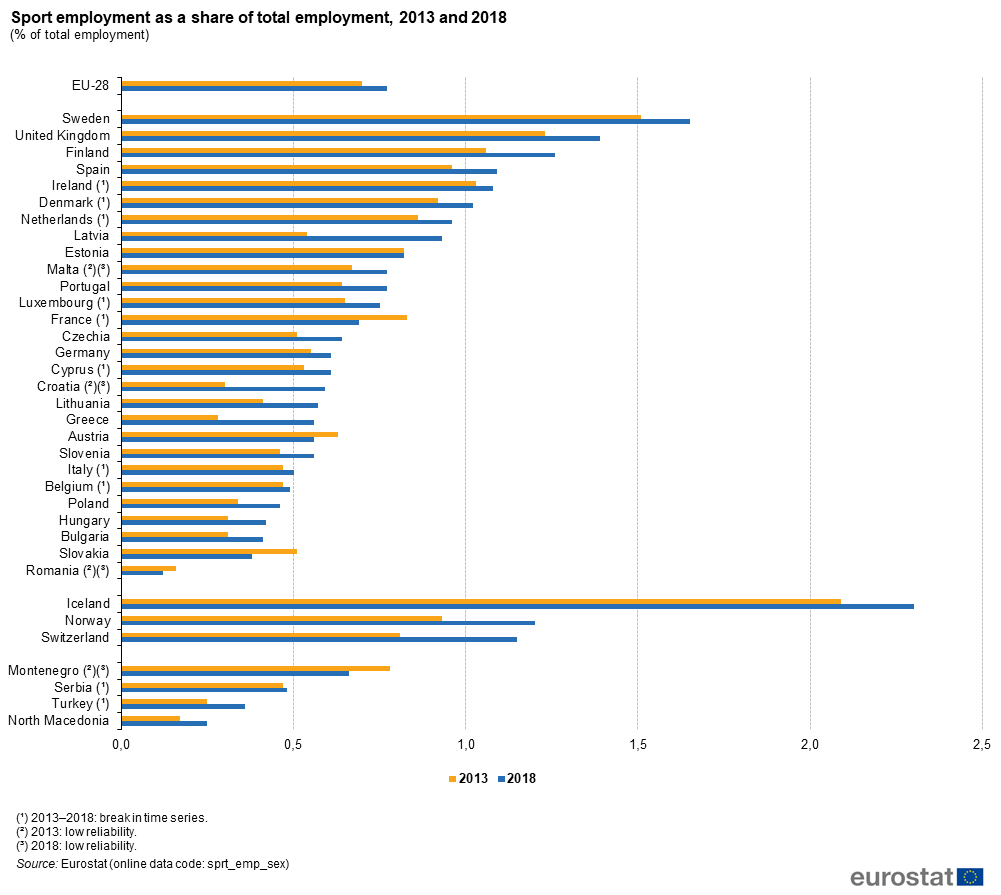
Employment in sport represents more than 1.7 million people in the EU and is steadily rising
Eurostat
In 2018, 1.76 million people worked in the field of sport in the EU-28: more than half are men (55%), a percentage in line with total employment. People in the age group 15-29 make up 38 % of the total employed in sport, more than double the share in overall employment, while the 30-64 age group accounted for almost 60 % (20 % less than the share for the total employment). Around 46 % of persons employed in sport have a medium educational attainment level (ISCED levels 3-4), 38 % have a high level (ISCED 5-8) and 16 % have a low level (at most ISCED level 2); these percentages are close to the proportions observed for overall employment.
Almost half (46 %) of the employed people in sports have a medium educational attainment level
Eurostat
Now, let us show you three smart recruiting tips on how to become a smarter recruiter. The first solution is called Frequently Asked Questions (FAQ).
FAQ
No matter if a potential candidate visiting your sports job ad or just looking through your company profile you should be prepared that not all information is clear to everyone. There will always be questions from potential candidates. Most people will try to contact you either via email or calls in order to ask more about additional details around the sports job, the culture, etc. Maybe you have already experienced those calls about simple questions regarding a job ad, which you perhaps can give quick answers about, however, this will take up most of your time from your daily work.
So what do we mean with FAQ? You should write down a list of potential questions you might get and provide answers to those and then publish these on the sports job ad page or a link to it. This will help the potential candidates but also you by adding value to the recruiting process. Make sure not only to make a FAQ for your sports job ad but also think about one FAQ regarding working at your organization.
Another good section to have in one FAQ is potential questions for an interview, but also additional things prior to the interview, for example, how to get there, what to dress or how an interview looks like at your work. You can ask your colleagues or someone in your network to help go through potential questions a job seeker might raise. This will help you identify questions from people that haven’t created and already know what the vacant sports job is about. These tips will make a great impression on future colleagues and for your employer brand.
Employer branding, is simply how you market your company to desired job seekers. You can do this by showcasing your organization’s unique cultural differentiators, and then working to amplify them so you can position yourself as a top place to work.
– Sarah Lybrand, Freelance Writer/Producer/Content Creator
With a FAQ section, you as a recruiter will not only reduce the number of phone calls, you will also save time to work on something else. You will also increase your employer branding and interests from job seekers by showing that you think about everything.
By helping your potential candidate, you will increase the likeability and the passion for that person to work for you.
Want to get help knowing where and how you find candidates? Become a smart recruiter, contact us and we can save your time and find the best talent for your organization in the sports sector.
Get in toucH with Sportidealisten
Recruit where your future candidate is
The next step towards a smarter recruiting is recruiting where your ideal job candidate is. When you have set up your ideal candidate persona, you should also know where this person exists, on social media channels, or via email or a phone call. But also knowing how to talk to them.
– Nearly 4 in 10 workers in sport employment are aged 15–29
– Over one-third of people employed in sport completed tertiary education
Eurostat
Once again, make sure to save time by saving the time of your potential candidate too. Are you looking for a person who is more used to a computer or a smartphone? Have you built your sports job ad or marketing plan with these behaviors in mind? If your website or sports job ad is designed to a desktop version and your ideal candidate persona only uses a smartphone or vice versa, you might lose out that person’s attention because of the wrong format.
The second aspect is if you are sharing and posting your sports job ads on social media channels if your ideal candidate is a daily and an experienced social media user. Sharing and posting your sports jobs where your future candidate is will be one of the differences between recruiting and smart recruiting.
Another aspect of this is your language. Is your language attractive to your ideal candidate? Do you use words that are more attractive to women or men? One service that is changing this problem is Textio, they help you find the right words by putting hiring and language data insights right where you need them.
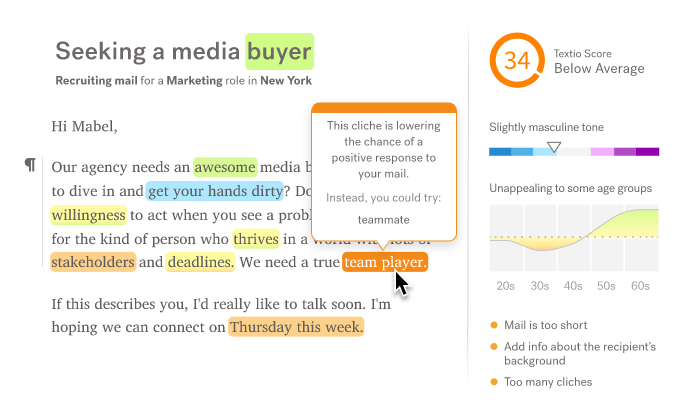
Great job candidates walk away when you don’t speak their language
– Textio
Want to get help knowing where and how you find candidates? Become a smart recruiter, contact us and we can save your time and find the best talent for your organization in the sports sector.
How to hire someone smarter than you?
Last advice on how to become a smarter recruiter. When you are hiring a role you have less knowledge about, you should talk with your network. If you are the responsible person for the recruiting process you might not know what the right skills are within a certain role you are trying to recruit for. This applies to the interviewer too in the recruiting process. The responsible people need to make sure that you know what you write about or talk about.
No matter if you work with HR and recruiting in a local grassroots sports club or a bigger organization, you should reach out to your network with people who have a similar experience. Ask them questions about the role you are looking for. Make sure to get the core so you feel confident when interviewing people for the role that you have less experience in.
Want to get help knowing where and how you find candidates? Become a smart recruiter, contact us and we can save your time and find the best talent for your organization in the sports sector.
Three tips about how to become a smarter recruiter
When you are recruiting, you want to find the right candidate. But you also want to do this in no time. Question is, are you a smart recruiter and have already done the tips we have shared?
What steps could you take in order to become a smarter recruiter and also improve your employer branding?
The first thing is to think about the job seekers’ perspective. If you can save the job seekers’ time, you will eventually save your own time and this solution is called Frequently Asked Questions. The next step towards a smarter recruiting is recruiting where your ideal job candidate is. Lastly, when you are hiring a role you have less knowledge about, talk with your network in order to know what to look for and ask about.
Want to get help knowing where and how you find candidates? Become a smart recruiter, contact us and we can save your time and find the best talent for your organization in the sports sector.

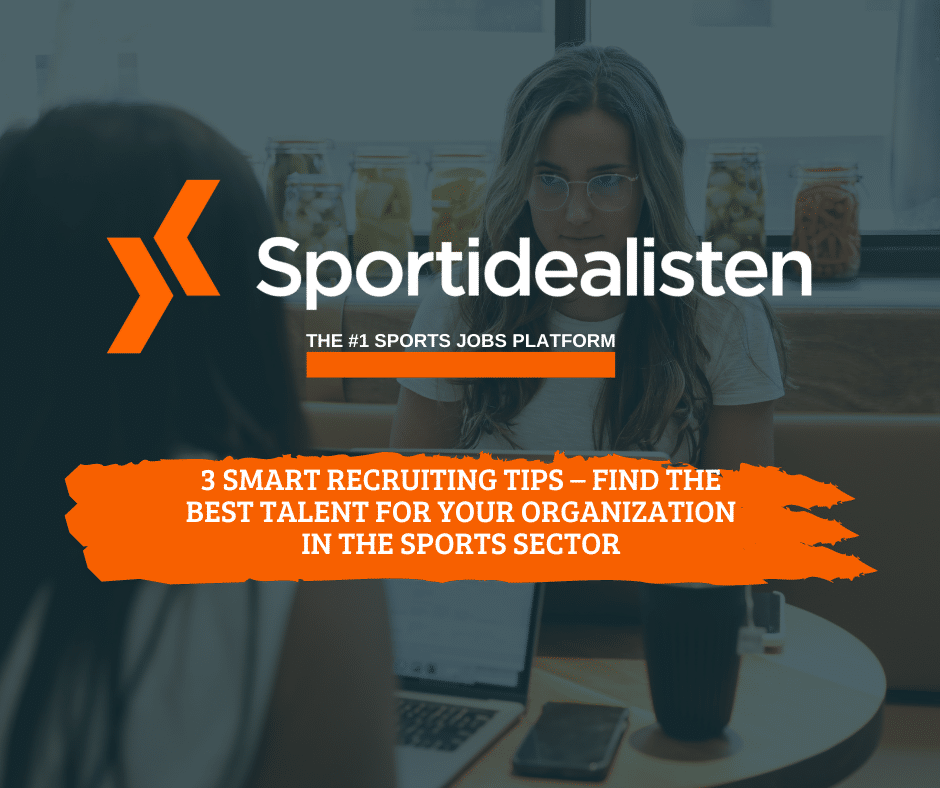
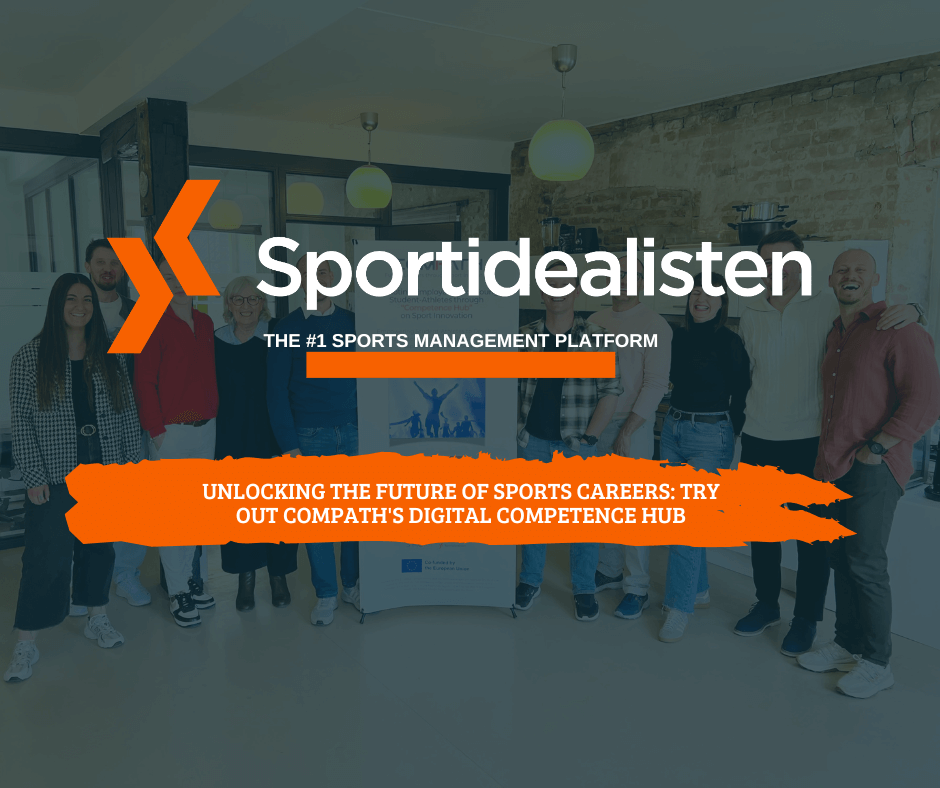
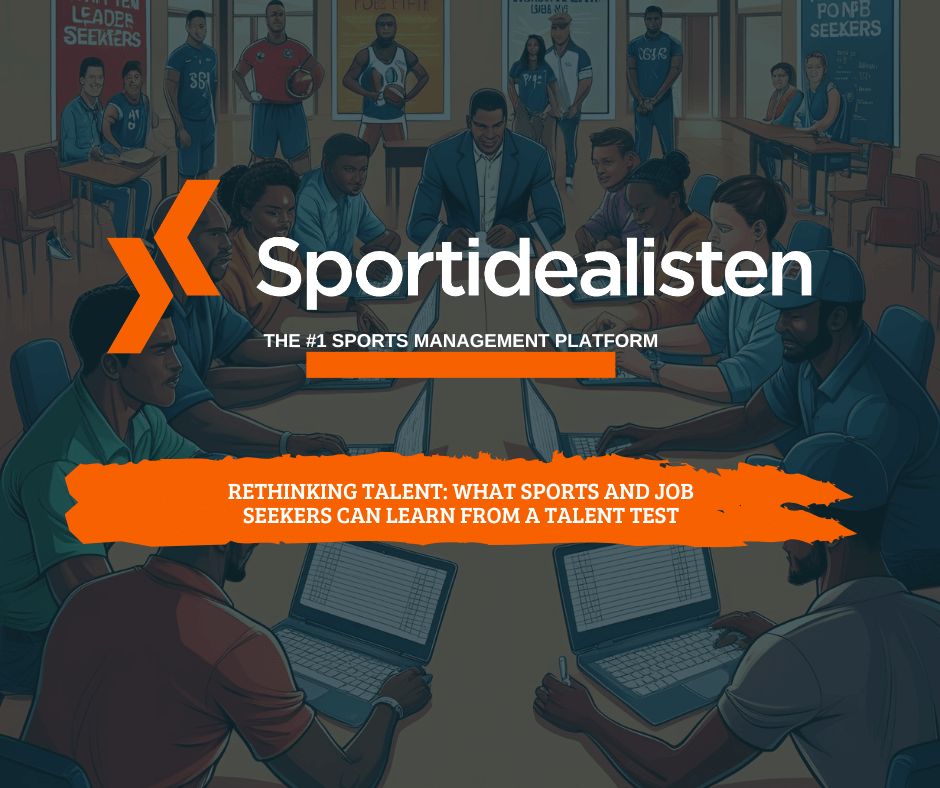


2 thoughts on “3 Smart Recruiting Tips – Find The Best Talent for Your Organization in the Sports Sector”
Comments are closed.